A Guide To Build High Quality Backlinks In 2024 (+8 Strategies)
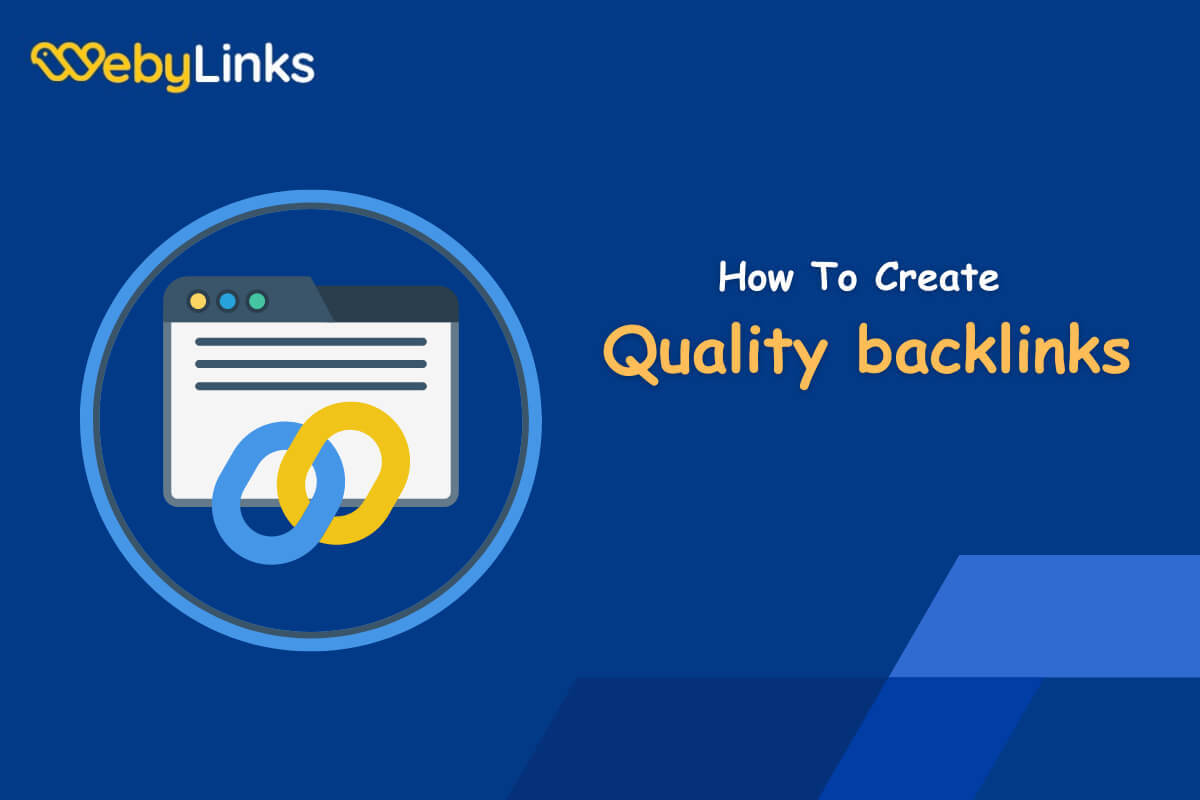
Having high quality backlinks is essential for achieving a high rank in search engines and driving traffic to your website. In fact, over 50% of sites that lack at least one relevant link fail to make it to the first page of search results.
However, not all backlinks have equal value. Low quality backlinks from irrelevant or Spam sites can actually hurt your search rankings. That’s why it’s critical to create high quality backlinks from authoritative websites.
This is a comprehensive Guide on creating links in 2024. Thus, you’ll appreciate the useful advice in this updated tutorial if you wish to increase the number of authoritative backlinks pointing to your website.
Now Let’s Get Started.
Key Areas to Explore in This Comprehensive Guide
- What are high-quality backlinks, and why do they matter?
- 8 proven tactics to generate high quality backlinks for your website
- How to identify the best link-building opportunities?
- Metrics for assessing backlink quality
- The difference between quality vs quantity
- Top SEO experts’ advice for developing an effective backlink building strategy
- Conclusion
If you want to improve your website’s domain authority and search rankings, read on to learn how to build high-quality backlinks the right way.
What are High Quality Backlinks?
A quality backlink comes from an authoritative, relevant, and credible website that adds value for users. Essentially, it’s a link that search engines like Google find valuable.
High-quality Links indicate to Google that another site finds your content useful and trustworthy. As a result, Google interprets these types of links as “votes” for your authority on a given topic, thereby improving your search rankings. That’s why premium sites like the New York Times, Wikipedia, Hub Spot, and more have high domain authority.
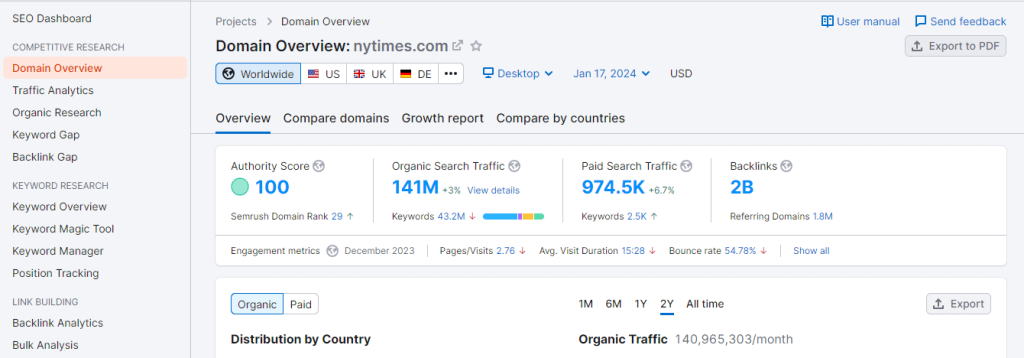
What are the three main features of Quality backlinks?
- The website should relate closely to your niche. Backlinks from a news site wouldn’t benefit an eCommerce store selling robot vacuums, for example. But a link from an electronics review site would be relevant and add credibility.
- Quality links come from reputable sites that provide value to their visitors and have a solid domain authority of their own. Spam websites don’t influence search rankings positively.
- The anchor text (the text used for your backlink) should relate naturally to the content rather than be awkwardly placed. And the content surrounding the link should also relate to your site’s topic.
Now, let’s explore some of the most effective tactics for acquiring authoritative, high-quality links.
How To Build Quality Backlinks With 8-Point Strategy
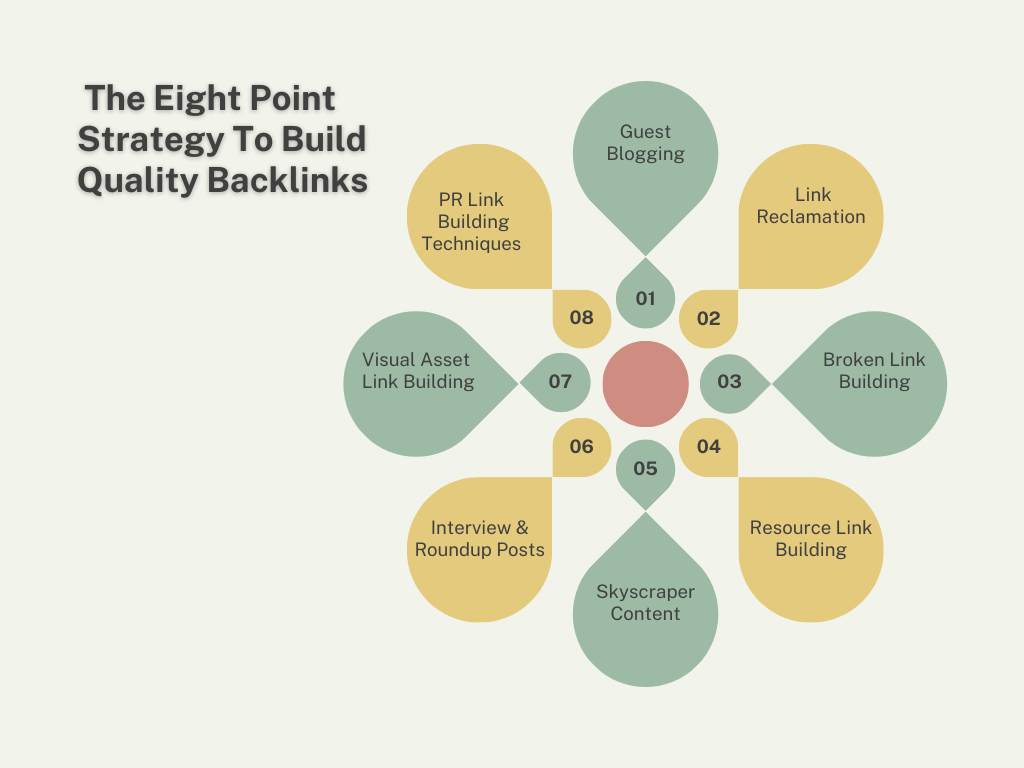
1. Guest Blogging
Guest posting on popular blogs allows you to include links in your author bio and content where appropriate. Strive for placements on reputable sites, getting decent traffic.
Start by identifying blogs that align closely with your niche and routinely publish contributor content. Pitch posts that provide unique value for their audience instead of purely promotional guest posts.
In your articles, you can link to resources hosted on your site, like analytics, studies, or tools that would interest readers. This content-driven guest blogging wins quality links.
2. Link Reclamation
You may find brand mentions on other sites that don’t link back to your domain. Reach out politely to website owners, asking them to add a link when they reference your company or cite your original research.
Set Google Alerts to monitor brand name mentions easily. Prioritize securing links from contextually relevant sites with higher domain authority. The higher the site’s authority, the more link equity gets passed onto your page.

3. Broken Link Building
Websites try to avoid broken pages that damage user experience. Take advantage by finding broken links on relevant sites and recommending your content as a replacement.
Analyze competitor backlink profiles first to identify possible prospects. Then, inspect those sites for non-working links. Email site owners showing your content to fill the content gap and request they swap your link.
4. Resource Link Building
Produce genuinely useful resources like online tools, research reports, how-to guides, or unique datasets for your audience. Useful assets that solve problems or satisfy needs tend to attract high quality seo backlinks naturally.
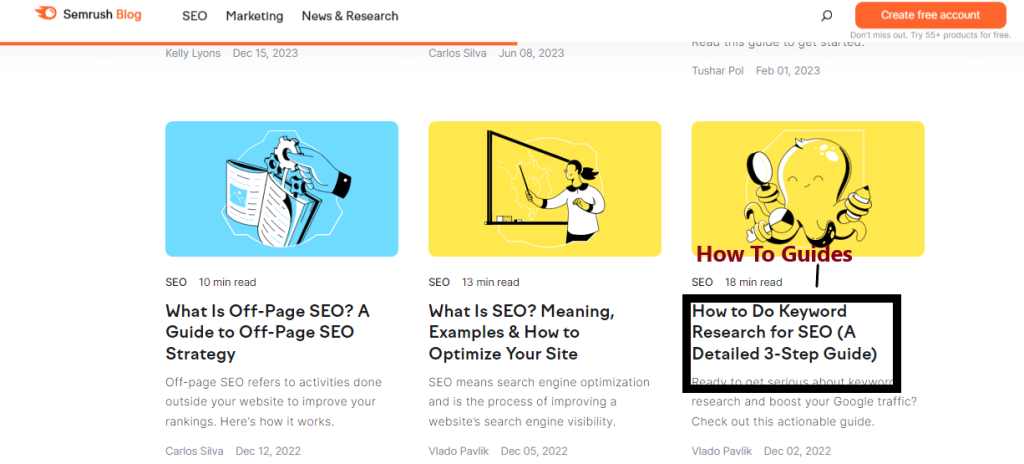
Promote your resources through content marketing across channels like social media and email newsletters. Outreach to relevant sites informing them of the resource and how it could benefit their audience as well.
5. Skyscraper Content
Audit the content of top-ranking competitors and build something even more extensive and insightful. If you create a definitive guide on a topic searchers care about, other sites will want to reference it.
After identifying competitor pages earning significant organic traffic, examine the content gaps where you could provide an upgraded experience. Then, heavily promote your skyscraper piece to inform sites it exists to link to it.
6. Interview & Roundup Posts
Interview industry experts or thought leaders and link to their websites for quality links in return. You can also summarize the best posts on a topic from around the web through roundups and links.
Variations like “State of X Industry” posts quoting multiple subject matter experts or “Best Y Posts of 2024” curated content roundups work very well, too, for securing backlinks.
7. Visual Asset Link Building
Infographics, images, presentations, and other visual formats tend to build high quality backlinks
links due to innate shareability. Ensure your visual assets provide ample value before promotion.
Upload visual content to platforms like Slideshare, Flickr, and Pinterest to expand reach. Pursue paid sponsorship opportunities to gain additional exposure. Reach out to relevant sites directly about featuring your visual assets as well.
8. PR Link Building Techniques
Create high quality backlinks by getting your content, products, or expertise featured in authoritative publications. Build relationships with business journalists and bloggers to become a trusted industry source they contact.
Distribute press releases when your company has important news like a product launch, funding round, partnership, etc. Reporters may source your announcements post-release for future articles.
You can also use templates from canva and customize it according to your niche.

Identifying Quality Link-Building Opportunities
Manually evaluating potential linking sites is unrealistic, given the web’s vastness. Link analysis tools assess metrics like authority, credibility, relevance, and equity to spotlight quality link building candidates.
Here are the key metrics for determining which sites offer the best ROI on link-building efforts:
Domain Authority – Domain authority (DA) measures the power of a website to rank for its topic based on backlink quality/quantity. Higher DA websites pass more rankings benefits. Generally, aim for sites with at least 30+ DA.
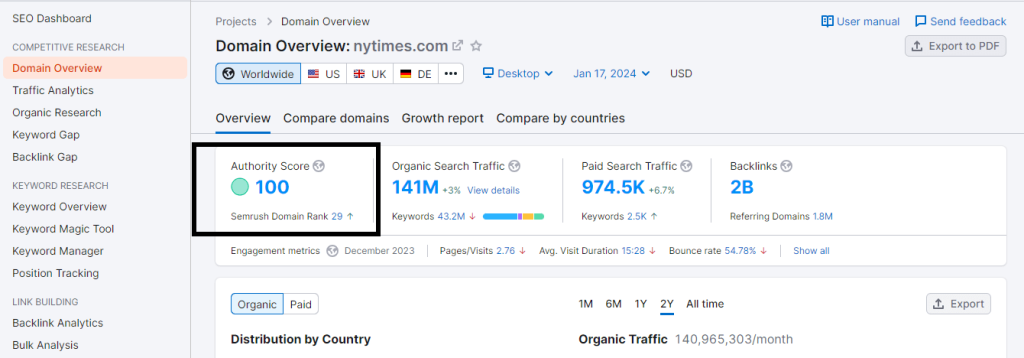
Domain Rating – Domain rating gauges overall website quality through proprietary metrics like visits, links, social activity, etc. Look for sites with a minimum rating in the 60s.
Relevance – Analyze site content against your niche’s key themes and target keywords. Higher topical relevance indicates a more valuable contextual link.
Referring Domains – Total number of unique domains linking to the site. More = higher credibility. However, it also examines the domain authority level of referring sites.
Organic Keywords Ranked – Estimates keywords a site ranks for organically. A greater number conveys broader authority and awareness.
Organic Traffic – Website traffic volume from search engines. Higher organic traffic = stronger domain authority and a quality backlink target.
Research website metrics manually or utilize SEO crawlers like Ahrefs, Majestic, SEMRush, or Moz, which index billions of pages. Always fact-check any metrics with your analysis before pursuing a link.
Distinguishing Backlink Quality vs Quantity
You’ll often hear you need backlinks in bulk to contend for rankings. However, low-quality links from spam sites fail to influence search performance and may even trigger penalties. That’s why quality trumps quantity with backlinks.
Sure, securing hundreds of links helps. But just a few authoritative backlinks from reputable publications like Wired, Healthline, or HuffPost outweigh lots of minor links on irrelevant sites.
If you had to choose just ten quality links from premium sites or 500 links from garbage domains with thin content, always go for the smaller high-quality set for measurable wins.
Building an SEO Backlink Strategy
An effective link-building strategy entails defining targets, tailoring outreach, and tracking ROI continuously. The software affords automation capabilities at a scale otherwise unrealistic manually. Still, begin building manually to grasp the process before expanding efforts.
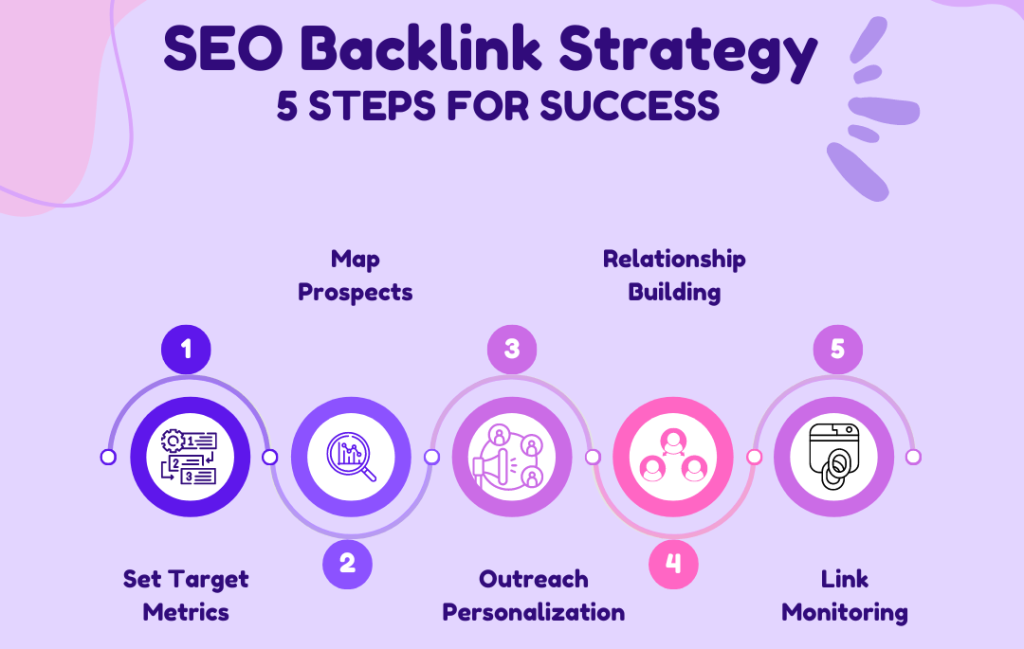
- Set Target Metrics – Establish quantified backlink goals around volume, projected traffic, rankings boosts, etc. Define site criteria as well – like DA above 40, relevant to X topic, based in Y region, etc.
- Map Prospects – Use software tools to search for sites matching your focus areas. Or research sites manually through competitors’ backlink profiles, Google searches, influencer tracking, etc.
- Outreach Personalization – Customize emails referencing recent articles, site pain points, or user trends. Send follow-ups if needed, but avoid spamming.
- Relationship Building – Don’t purely pursue links. Comment on blogs, share content or provide helpful feedback. Engage social channels as well.
- Link Monitoring – Use link analysis tools to monitor link gains, losses, anchor text, etc. Continue adding prospects into your outreach sequences.
- Include both automation software plus manual outreach efforts for balance. With software, you can discover thousands of prospects and then pursue select high-value sites manually. Quality over sheer quantity remains key throughout.
Conclusion
In the year 2024, obtaining high quality backlinks is still critical to success on the World Wide Web. Establishing credible relationships requires an understanding of the three pillars of relevance, trustworthiness, and context. The eight-point plan places a strong emphasis on value-driven content generation, from guest blogging to PR tactics. The best link-building possibilities may be found with the help of important criteria like domain authority and relevancy. Quality always wins out over quantity, with an emphasis on connections from reliable, trustworthy sources. Maintaining a consistent and effective link-building strategy requires striking a smart balance between automation and human labour as we traverse the ever-changing domain of SEO.
